Knowing the best anti inflammatory foods to eat is important when persistent inflammation occurs in the body. We have all experienced this at one time or the other.
The immune system in the body is triggered by foreign objects such as invading microbes, plant pollen, toxins or chemicals that produce some inflammation to protect the health of the body.
Unfortunately, some bouts of inflammation can become persistent even in the absence of these foreign invaders.
That is when quick action is required to stop the activity of antibodies against the “perceived” intruders.
Fortunately, some major diseases linked to chronic inflammation such as heart disease, diabetes, arthritis, depression, Parkinson’s, Alzheimer’s and cancer as well as other cases of persistent inflammation are known to benefit from a diet of anti-inflammatory foods.
Inflammation can affect mobility, and certain medical conditions may require the use of mobility aids.
Prefer to a previous article on this site to determine which types of medical conditions can use mobility aids – How To Choose A Rollator. Benefits For These Medical Conditions. Remember though – prevention is always better! Other than diet, there are other best ways to reduce inflammation in the body through lifestyle changes.
What are The Best Anti Inflammatory Foods You Can Eat?
The best guide to an anti-inflammatory diet is provided by the Mediterranean diet, which is high in fruits, vegetables, nuts, whole grains, fish, and healthy oils.
Fortunately, there is an impressive list of these foods at our disposal. This article only reviews vegetables, fruit, fish and healthy oils.
Nuts and whole grains will be treated in a separate article.
High Antioxidant Fruits
Berries – The Best Anti Inflammatory Foods to Eat

The small fruits called berries are packed with fiber, minerals, and vitamins.
All forms of berries (blueberries, strawberries, raspberries, or blackberries) contain antioxidants known as anthocyanins.
These anthocyanins give berries their vibrant blue-purple and reddish color.
While all fruits are generally high in antioxidants, berries are the superstars because they contain several chemical compounds that combat inflammation, cancer, and cardiovascular disease.
Berries reduce existing inflammation, but they help train the body to better respond to future episodes of inflammation.
Grapes
The red cherry fruit are rich in antioxidants, such as anthocyanins and catechins, which fight inflammation and reduce the risk of disease.
Anthocyanins found in grapes help reduce inflammation. They may also reduce the risk of several diseases such as diabetes, Alzheimer’s, eye disorders, heart disease, and obesity.
Cherries
Leafy Greens & Cruciferous Vegetables
Leafy Greens
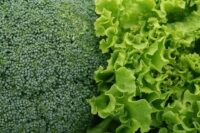
Spinach, kale Swiss Chard dandelion greens and other greens are not only full of antioxidants but are packed with nutrients including folate, fibre, vitamins A, C, E, and K and a variety of minerals.
Leafy greens help prevent cognitive decline, maintain the internal microbiome and reduce overall body inflammation. This is just one of several anti aging tips.
Broccoli, Brussel Sprouts and Cauliflower
A cruciferous vegetable, broccoli is rich in vitamin K, vitamin C, potassium, magnesium, and fiber but it is the sulforaphane that makes broccoli extra special.
Sulforaphane is one of the most studied compounds in broccoli and studies show that it has protective effects against cancer and can detoxify harmful chemicals in the environment that would otherwise trigger inflammation in our bodies.
Research has demonstrated that eating lots of cruciferous vegetables is associated with a decreased risk of heart disease and cancer.
There are several simple recipe books to choose from if you are serious about starting an anti-inflammatory diet.
Salmon and Other Fatty Fish
Fatty fish such as salmon, trout, sardines, anchovies, and mackerel are all high in essential omega-3 fatty acids EPA and DHA which have anti-inflammatory properties.
These are essential because the body cannot make them, so they need to be provided from your diet.
Omega-3s have proven to be even more important and beneficial for several autoimmune conditions including lupus, rheumatoid arthritis,
Type one diabetes, psoriasis, ulcerated colitis, multiple sclerosis and so many others Omega-3s threes are also critical for brain health.
Those who consume fatty fish regularly are less likely to be depressed or anxious (Harvard Health Publishing 2020)
Avocados
Are full of monounsaturated fat which is the good fat that helps to reduce cholesterol and helps to reduce inflammation of the joints.
Healthy fats like those from avocado are required for energy, blood clotting, brain development, absorbing fat-soluble vitamins and limiting inflammation.
The various nutrients in avocados have been proved to be beneficial in preventing neurodegenerative diseases such as Alzheimer’s.
It has also been found that avocados contain carotenoids and tocopherols, both linked to reduced cancer risk.
Avocados have more potassium than bananas. For a 3 1/2 ounce serving of bananas, you would get 10% of the recommended daily allowance of potassium, while in the same serving size of avocado you would get 14%.
Spices and Herbs
Garlic
The medicinal properties of garlic have been known for centuries and numerous studies demonstrate that it has both cancer preventative and immune-boosting effects. It adds flavor to any recipe, but it also has wide-ranging health benefits.
Garlic contains anti-inflammatory chemicals such as quercetin which naturally inhibits histamine and sulfur compounds that stimulate the immune system to fight disease.
Studies have shown that garlic can reduce the inflammation pain and cartilage damage associated with arthritis.
Ginger
Like garlic, ginger has been used for centuries around the world for its healing properties. It is known to help reduce motion sickness, reduce pain, and reduce nausea.
Ginger contains substances known as gingerol that reduce inflammation and turn off the pain-causing compounds in the body.
It supports digestion and helps with motility which just means that it moves materials more quickly through our intestines and in fact, it can increase motion twice as fast as regular motion.
This is helpful for sufferers of constipation. These digestive benefits of ginger have been shown to help reduce colorectal cancer and boost the immune system.
This is important because about 75% to 80% of our immune system comes from our guts so anything that helps the gut like ginger is going to help the immune system as well
Turmeric
A spice with a strong earthy flavor, turmeric is often used in curries and other Indian dishes.
It reduces inflammation related to arthritis, diabetes, and other diseases due to its high content of curcumin.
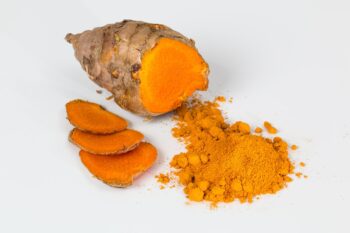
The absorption of curcumin is greatly enhanced by eating it with black pepper.
In a 2015 study, it was found that consuming 1 gram of curcumin daily combined with piperine from black pepper caused a significant decrease in the inflammatory marker CRP in people with metabolic syndrome (Yuanes Panahi et al, 2015)
Chia Seeds
While chia seeds are known as a super food today, in ancient times they were a dietary staple notably for providing energy. In the ancient Mayan language, the word “chia” was translated to the word strength.
In addition to all the vitamins and nutrients in chia seeds, they also pack a hefty dose of fiber.
They are one of the world’s best sources of fiber which is important in helping to balance blood sugar and of course, maintain good gut health. Chia seeds, along with black seeds are loaded with antioxidants and Omega-3s.
The antioxidants fight free radicals while the Omega-3s reduce inflammation
Green Tea
This tea touts several benefits due to its antioxidant and anti-inflammatory (EGCG) properties. It is known to reduce the risk of heart disease, cancer, Alzheimer’s disease, obesity, and other conditions
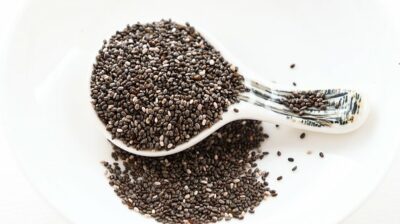
Bell Peppers and Chili Peppers
The peppers – Bell and chili peppers are loaded with vitamin C and antioxidants that have powerful anti-inflammatory effects.
These include the antioxidant quercetin in bell peppers and, sinapic and ferulic acid in chili peppers.
Mushrooms
Very few mushrooms are edible. However, edible mushrooms (such as portobello, shiitake and truffles), that are commercially grown contain phenols and antioxidants that may protect against inflammation.
Nutritionists and doctors recommend eating them raw or lightly cooked to derive their full anti-inflammatory effects.
While mushrooms are low in calories, they are very rich in selenium, copper, and B vitamins which is why they are regarded as one of the best anti inflammatory foods to eat.
Dark Chocolate
The delectable dark chocolate contains flavanols which are responsible for the anti-inflammatory effects of chocolate and cocoa, and keep the endothelial cells that line the arteries healthy.

Dark chocolate containing at least 70% cocoa is recommended to derive full anti-inflammatory benefits.
Tomatoes
They are high in vitamin C and potassium. They are an excellent source of lycopene, which may reduce inflammation and protect against cancer
Cooking tomatoes in olive oil can maximize the amount of lycopene absorbed into the body.
This is because lycopene is a known carotenoid – a nutrient whose rate of absorption uptake increases in the presence of a fat source.
Extra Virgin Olive Oil
The extra virgin olive oil is a very healthy fat rich in monounsaturated fats. It is a known staple in the Mediterranean diet and provides numerous health benefits including a reduced risk of heart disease.
The oil provides greater anti-inflammation protection than olive oils that have undergone greater processing
Conclusion – The Best Anti Inflammatory Foods to Eat
The best anti inflammatory foods to eat can be found in foods belonging to a Mediterranean diet. Many of these foods reduce the risk of various diseases and improve health.
Please leave a comment if you liked this article.
Related Articles
- What is Arthritis? Focus on Seniors
- Changes in the Body with Age. Avoid Surprise
- Arthritis and Insomnia. A Sure Recipe for Falls
FAQ
What are the best anti-inflammatory foods you can eat?
The best anti-inflammatory foods you can eat include fatty fish (like salmon), leafy greens, berries, nuts, olive oil, and turmeric. These foods help reduce inflammation and promote overall health.
References
Yunes Panahi et al (2015) Antioxidant and anti-inflammatory effects of curcuminoid-piperine combination in subjects with metabolic syndrome: A randomized controlled trial and an updated meta-analysis Clin Nutr 2015 Dec;34(6):1101-8. https://pubmed.ncbi.nlm.nih.gov/25618800/


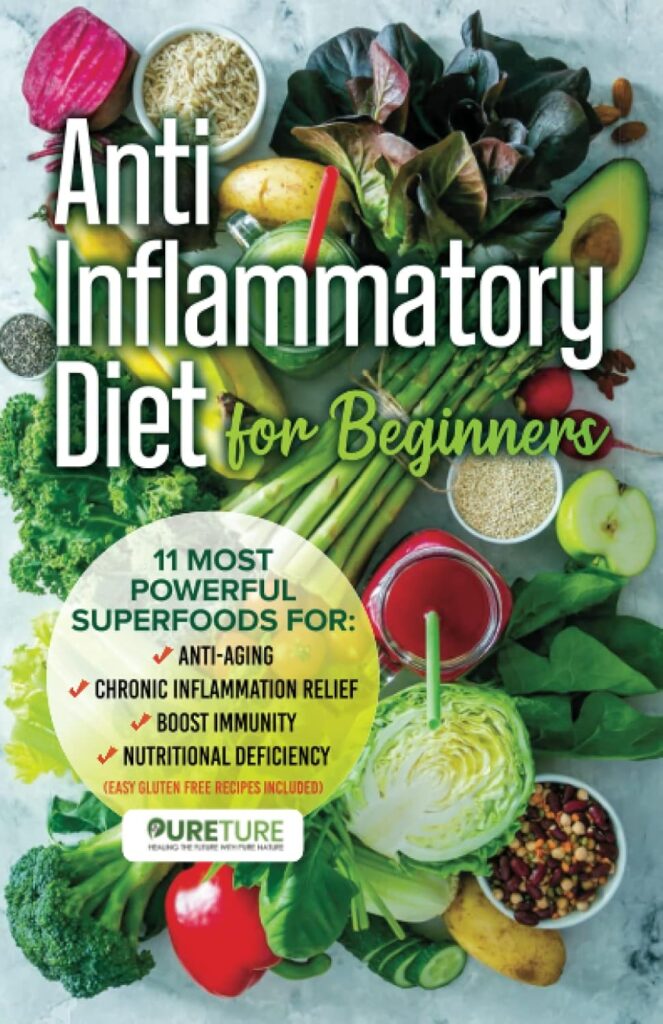

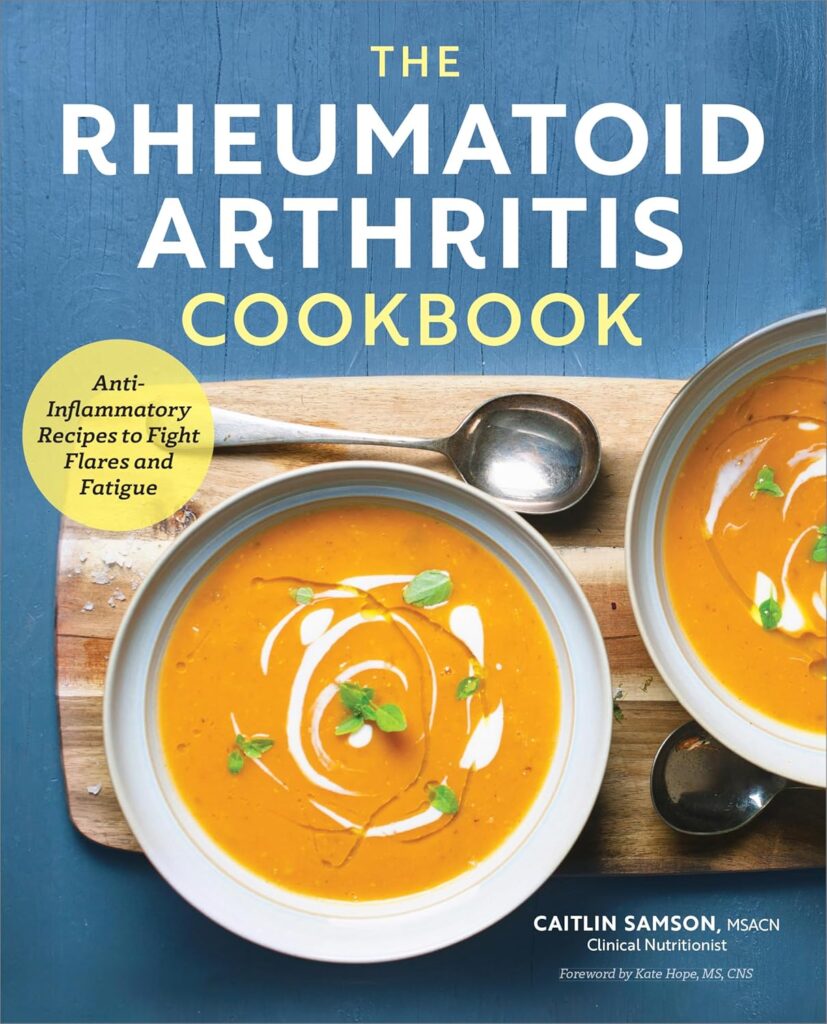
It’s good to know that I eat most of the foods you mentioned. I eat dark chocolate every day, I just love it! 🙂 I also eat a lot of broccoli (mostly cooked but sometimes raw), avocados, and Bell peppers (and others too but Bell peppers are my favorite). I have several Bell pepper plants on my property and they give me nice, big peppers 🙂 I’m also growing avocado and cranberry trees on my property, and many other fruit trees. Are cranberries also loaded with antioxidants like the other berries in your list?
Hello Christine,
I must say that i am green with envy that you are able to plant such a variety of nourishing fruits and vegetables on your property. It is too cold where i live!! I eat several of the listed items myself and can report that it does make a huge difference for me.
Yes cranberries are also good and loaded with antioxidants.
Ceci
Thank you so much for this highly informative article, Ceci! Several of my family members battle inflammation issues, ranging from gout to depression to allergic reactions. As a gal with Southern roots on both sides of my family, we love our green foods-collard greens, broccoli, spinach. etc. I am so happy to hear that these greens foods (along with dark chocolate and berries-both of which I absolutely LOVE. Haha) offer such vast anti-inflammatory benefits. We have the resources necessary to win this war! I am going to share your website with all of my friends and family (everyone knows someone who struggles with inflammation). Great read! Yah (God) bless you!
Thanks for your comment C.N. Inflammation can bea nicely managed by incorporating these anti-inflammatory foods into the diet. Please share the article. i hope it can help many folks suffering from inflammation.
Ceci
Hi Ceci,
Thanks for showing us some anti-inflammatory food. It’s good to know that we can heal inflammation by eating food from your list instead of seeing a doctor. My family got a tradition: we eat lots of gingers when someone is sick or not comfortable. Mom used to put lots of gingers in the fish soup, stir fry ginger with other vegetables, or add ginger powders into drinking water. Now, I know the reason… It’s cool that we feel so much better the next day after taking so many gingers.
Anyway, I will send your article to my mom. I expect to see more anti-inflammatory food on my dinner table. 🙂
Cheers,
Matt
Hello Matt,
Ginger is really good for you! I drink it and add it to my stir fry or occasionallysome other vegetable.
I am delighted that you will be sharing the article with your Mum!
Ceci
Hi there .Thank you for this list of food that works against the inflammation. I love personally majority of the food you mentioned,but recently I discovered the great taste of Avocado (didn’t like it before,but guessing my girlfriend made it the way I started to love it) Knowing these extra benefits,it’s going to made me eat it even more ?Will check your website more often now. Cheers
Hello Julius,
Delighted that you already incorporate several of these foods into your diet. Do stop by the website again or better stilll, subscribe to our newsletter so that you never miss out on new articles.
Ceci
Very informative article! In my search for healing, I’ve learned with Orthomolecular medicine that there are three things that are the root of all the illnesses: stress oxidative, glycation and inflammation and most of the time if these thing are addressed then illness (which is the symptoms) will also disappear. Although the consume of anti-inflammatory food is important to combat inflammation, removing foods that cause inflammation is even more important to prevent it – hence why it is advisable that everyone should do an intolerance/food sensitivity test to find out which food is likely to cause inflammation to that person’s organism.
You are correct! Prevention and avoidance are both sides of the same coin. Those with constant bouts of inflammation should definitely seek medical guidance.
Ceci